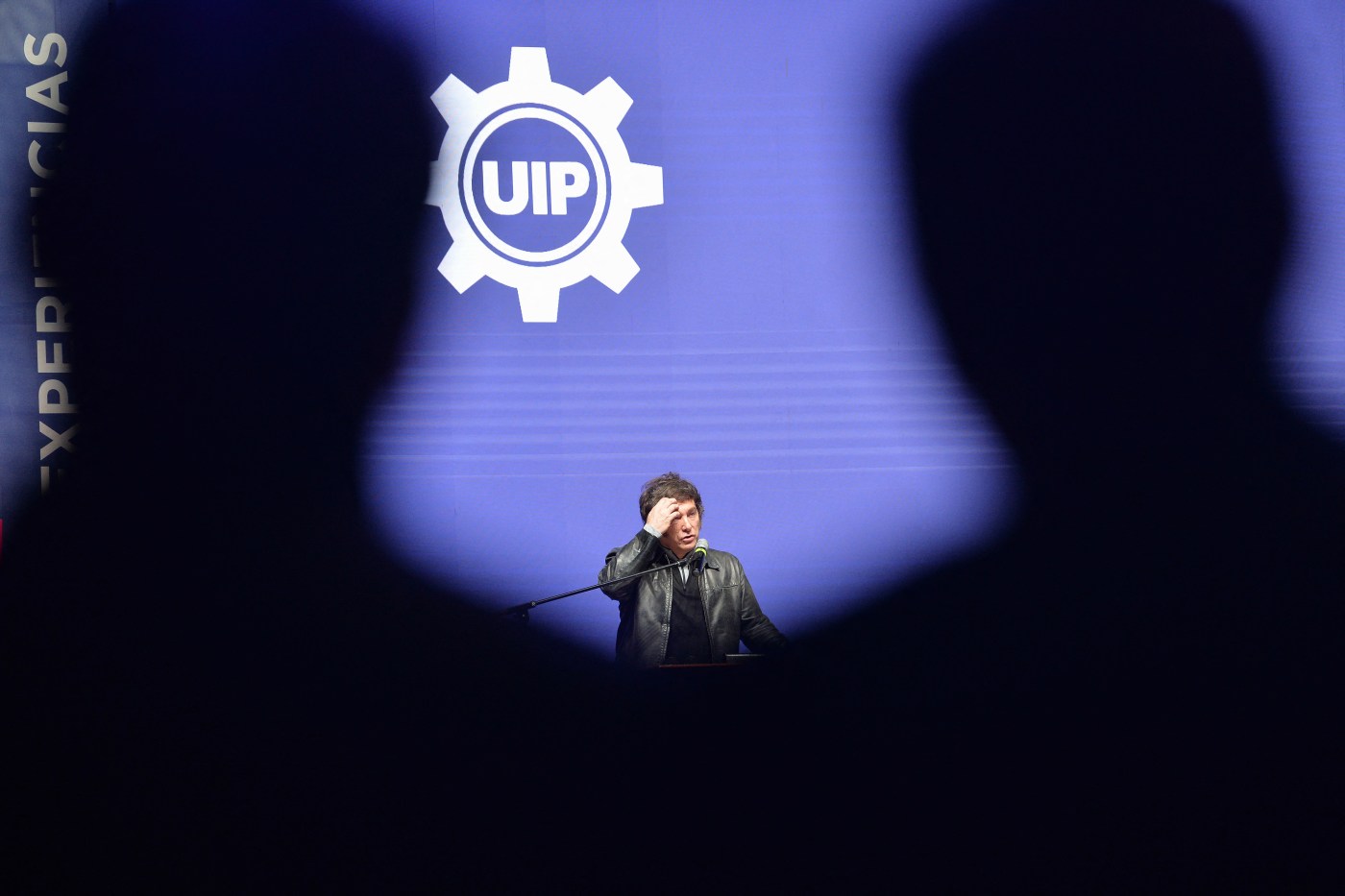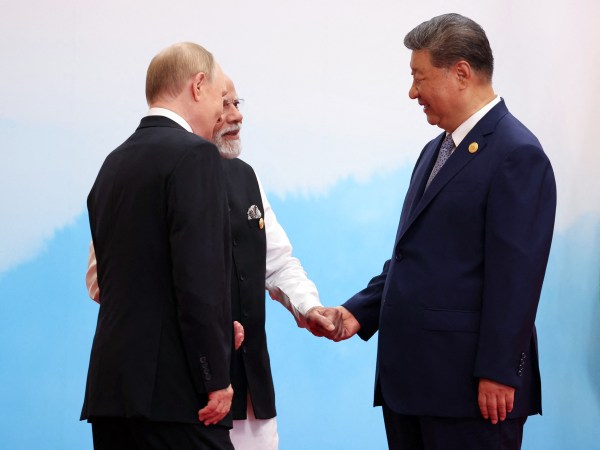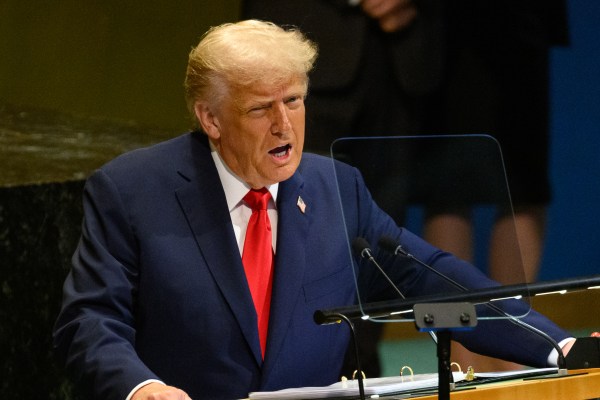Turn any article into a podcast. Upgrade now to start listening.
Premium Members can share articles with friends & family to bypass the paywall.
One of the first actions President Donald Trump took upon resuming office in January was to sign an executive order that characterized U.S. foreign aid programs as “not aligned with American interests” and marked the beginning of a dramatic reduction in U.S. foreign assistance. Just nine months later however, the Trump administration has committed $20 billion in emergency financial assistance to Argentina in a move that outraged farmers reeling from a collapse in soybean sales to China that Argentina has exacerbated.
The package, announced by Treasury Secretary Scott Bessent following Trump's meeting with Argentine President Javier Milei at the U.N. General Assembly last week, is the largest direct U.S. financial intervention in Latin America since the 1995 Mexican peso crisis. At first glance, throwing Argentina a lifeline of this magnitude could be dismissed as an arbitrary deviation from the administration’s “America First” doctrine due to the personal affinity between Trump and Milei, the libertarian economist who won election in 2023 promising radical reforms. Closer examination suggests that other factors such as the structure of the bailout, domestic political circumstances in Argentina, and China’s growing presence in South America likely figured heavily in the decision.
What does the bailout include?
The $20 billion commitment operates through three mechanisms that are distinct from traditional foreign aid channels. The centerpiece of the bailout package is a Federal Reserve-style currency swap line between the U.S. Treasury and Argentina's Central Bank, allowing Argentina to exchange pesos for dollars to defend its slumping currency—a tool typically reserved for major allies during systemic crises.
The Treasury will also directly purchase Argentine government bonds in both secondary and primary markets. This intervention aims to stabilize bond prices after markets panicked following a September 7 provincial election loss by Milei’s party, when the peso dropped and Argentina's Central Bank burned through $1.1 billion propping up the currency.
The U.S. assistance comes five months after the International Monetary Fund (IMF) approved a financial assistance program worth $20 billion to address the country's economic imbalances. Combined with the American support, the total reaches $40 billion. Argentina's GDP is approximately $630 billion, making this combined assistance roughly 6 percent of the country's entire economy.
Why intervene now?
Electoral results served as the immediate trigger for the U.S. bailout. On September 7, Milei's Liberty Advances party lost an election in Buenos Aires province, which is home to 40 percent of Argentine voters, by 13 percentage points. Markets panicked, and the Argentine peso plummeted. The October 26 congressional midterms now threaten to derail Milei's entire reform agenda if his party loses its working coalition.
Available data indicate Milei's reforms have produced mixed results. On one hand, inflation has collapsed from 25 percent to 2.4 percent monthly from 2023 to 2024, a remarkable achievement for a country long beleaguered by high inflation rates. The government also achieved its first fiscal surplus in 14 years in 2024. On the other hand, unemployment rose to 7.9 percent in the first quarter of this year, the highest level in four years, and while poverty has fallen, it still affects 31 percent of the population. These mixed metrics create political vulnerability that the country’s opposition Peronists have been able to exploit effectively.
Bessent's description of the American assistance as “a bridge to the election” explicitly revealed the electoral calculus behind the bailout. The administration hopes financial stability through October 26 will help Milei's coalition retain enough congressional seats to continue its free-market reforms.
How does China factor in?
For the administration, the motivation to assist Milei is not based solely on Argentinian domestic politics. Argentina is home to about 4 billion tons of lithium reserves, roughly 13 percent of the global total, which makes it essential for electric vehicle batteries and energy storage. Chinese companies have systematically captured this resource, now controlling 43 percent of Argentine lithium exports through stakes in projects like Cauchari-Olaroz and Centenario-Ratones.
The U.S. currently purchases only 11 percent of Argentina's lithium exports. More significantly, Chinese-controlled production cannot qualify for Inflation Reduction Act tax credits due to “Foreign Entity of Concern” restrictions. This means lithium mined by Chinese companies in Argentina cannot support U.S. electric vehicle manufacturing—a critical vulnerability in automotive competition.
The bailout thus represents an attempt to continue encouraging Western-oriented leadership in Buenos Aires while the U.S. develops competitive counteroffers to Chinese investment. China has given Milei an even larger $35 billion currency swap deal, and the Trump administration is reportedly demanding that Argentina withdraw from that agreement to continue receiving U.S. assistance.
A long history of debt problems.
Argentina's relationship with international creditors follows a depressingly predictable pattern. Since 1950, the country has spent much of its time either in default or restructuring debt, entering 22 separate IMF loan programs since 1956.
A precedent from 2018 provides more reason to be pessimistic. The first Trump administration pushed the IMF to approve a $57 billion bailout program, the largest in its history, to support President Mauricio Macri. Within 18 months, the program failed spectacularly. Only four of 12 reviews that measured compliance progress were completed, and debt-to-GDP soared from 57 percent to 86 percent. Macri lost reelection, and Argentina still owes $45 billion from that failed intervention.
Three scenarios appear possible for the current bailout. In the optimistic case, Milei wins the midterms, implements sustainable reforms, and Argentina becomes a showcase for market-oriented governance while limiting Chinese influence. Historical precedent makes this unlikely as no Argentine government has sustained IMF loan conditions through a full electoral cycle since the restoration of democracy in 1983.
The baseline scenario would see Argentina’s markets and economy stabilize through October's elections, followed by gradual erosion of reforms as political resistance builds. Argentina would muddle through for two to three years before requiring additional monetary assistance or accepting another restructuring. This pattern has repeated often throughout recent Argentine history.
In the pessimistic case, Milei’s party is defeated, its reforms are reversed, and Argentina defaults on its U.S. assistance within a year to 18 months. The nation would likely deepen its ties with China as alternative financing becomes necessary, effectively negating the strategic rationale for U.S. intervention.
What happens next?
For America First conservatives rankled by the apparent contradiction with MAGA principles opposing foreign aid, a few considerations merit attention. First, the assistance uses emergency authorities rather than appropriated foreign aid, which maintains technical consistency with the January executive order. Second, the explicitly anti-China rationale aligns with broader administration priorities on strategic competition with China in our hemisphere. Third, Milei's libertarian reform agenda, which includes cutting government spending by 30 percent and eliminating 13 ministries, represents the kind of governance model many conservatives hope to showcase.
Nevertheless, substantial risks remain. Republican Sen. Chuck Grassley's complaint that Argentina immediately used new tax benefits to undercut Iowa soybean farmers in Chinese markets is one example of how Argentina will inevitably act against American interests in some ways to pursue its economic recovery.
The net effect will likely be temporary stabilization that postpones rather than prevents Argentina's next crisis. Based on historical patterns and current political dynamics, this suggests the $20 billion bridge leads not to Argentina becoming the stable, Western-oriented partner Washington envisions, but to the next request for assistance in a few years.
Policymakers should therefore view the bailout not as a solution but as expensive time-buying while the administration tries to build genuine alternatives to Chinese economic influence in Latin America. That means moving beyond emergency bailouts toward competitive infrastructure investment, mineral processing partnerships, and market access agreements that create sustainable alternatives to Beijing's patient capital.
Without such follow-through, this $20 billion gamble will likely join the long list of failed Argentine rescue attempts, achieving neither economic stability nor strategic advantage in great power competition.







Please note that we at The Dispatch hold ourselves, our work, and our commenters to a higher standard than other places on the internet. We welcome comments that foster genuine debate or discussion—including comments critical of us or our work—but responses that include ad hominem attacks on fellow Dispatch members or are intended to stoke fear and anger may be moderated.
With your membership, you only have the ability to comment on The Morning Dispatch articles. Consider upgrading to join the conversation everywhere.